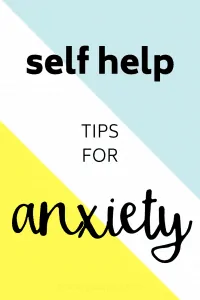self help tips for anxiety
Self-Help Tips for Dealing with Anxiety
Everybody experiences anxiety from time to time in their life. You can’t always breathe through an anxiety attack either. Anxiety attacks people in different ways. Some have trouble breathing, their heart races, with flushed skin and chest pain. If you have frequent anxiety attacks, try these self-help tips for dealing with them.
1. Exaggerate your biggest fear
Talk to a friend about your biggest fear, whether it be giving a presentation to your class or riding a roller coaster. Make it as dramatic as possible with lots of descriptive words and plenty of your raw emotions. Then when it comes time for you to do that thing that scares you, it won’t be as horrifying because you’ve already ruled out all the possible horrible things that can happen to you. After talking to your friend about this a couple of times, your stories and exaggerations will start to become very silly and something you can laugh about together.
2. Distract yourself
In your scary situation, don’t think about where you are or what you’re doing. It seems easier said than done, but with practice, it’ll almost be like you aren’t even in the situation that causes your anxiety.
3. Exercise
Stress and anxiety both release the same hormone: adrenaline. When you exercise, you are releasing this hormone, making your anxiety levels go down.
4. Do not consume too much caffeine or alcohol
Both are stimulants and will only make your anxiety worse. Instead, turn to drinks like milk and water. Some general foods that are good to bring down your anxiety levels include nuts, berries, yogurts, legumes, and dark orange vegetables.
5. Meditate
Calm yourself down and focus on your breathing; nothing else. Tune out everything going on around you and count each breath you take.
6. Break down the days into minutes
Instead of stressing yourself out about what you’re going to do in the next three hours, focus on the seconds and minutes you are living in right now. This will help to eliminate some worries and anxiety you may have for a certain part of your day.
7. Use visual anchors
If you feel yourself getting anxious, find something that brings a sense of calm to you and focus on it. For example, if you find yourself stuck in traffic, you can look up at the clouds to help you feel calm.
8. Repeat a mantra
Simply repeat over and over in your head, a phrase that brings calmness and peace within yourself. A sample phrase would be, “I am enough” or “I can do this.” Building yourself up is often a technique people use to relieve some of their anxiety.
9. Write a love letter to yourself
This is just like what you’d do if you were repeating a mantra. Write down on a piece of paper all of the things you love about yourself. Then when you’re having an anxiety attack, read the letter. This, once again, will help relieve some anxiety.
You aren’t alone in this world. Millions of people suffer from anxiety. These tips given may not all work for you, and that’s okay. There are other tips out there for you to try, as well as doctors and other professionals to talk to.





